Dog and cat breeds you might want to reconsider

If you are looking to get cats or dogs, there are some breeds you would want to reconsider or avoid completely due to circumstances. Petify - The UK's ethical website for kittens for sale, dogs for sale and pets for sale. Find cats and dogs in your local area or post an advert.
Dog breeds you might want to avoid
Although the majority of people live in cities and suburbs, many of the popular dog breeds that have behavioural issues were designed to run and work in the country, frequently with livestock.
There are things you can do to avoid complications if you have two working humans in the house and know your dog will be alone for a significant portion of the day.
So, what breeds are not suitable for those who are away from home and unable to spend time exercising their dogs? Here we will look at five breeds of dog you should avoid:
Sled dogs, sheep and cattle herding dogs, hunting dogs, livestock security dogs, and a variety of other less sociable guard dogs are not suitable pets for those who work outside the house and live in urban and suburban areas.
1 - Siberian Husky
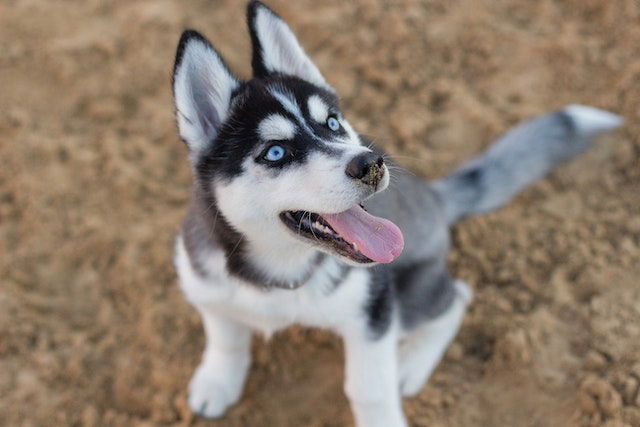
More than simply a lovely face, the Siberian Husky is a powerful dog.
Unfortunately, once the new owners understand what they've gotten themselves into, these dogs are frequently brought to animal shelters and euthanized.
Huskies from Siberia were bred to labour. Most dogs like pulling and placing them in a harness encourages them to do so. They are excellent escape artists, and if you believe you can just buy a husky and place him in your garden, you are incorrect.
Siberians that are bored are prone to a variety of behavioural issues. A frequent problem people have is with an escaping husky, a dog digging up the backyard, excessive chewing, or just failing to obey simple directions.
2 - Border Collie
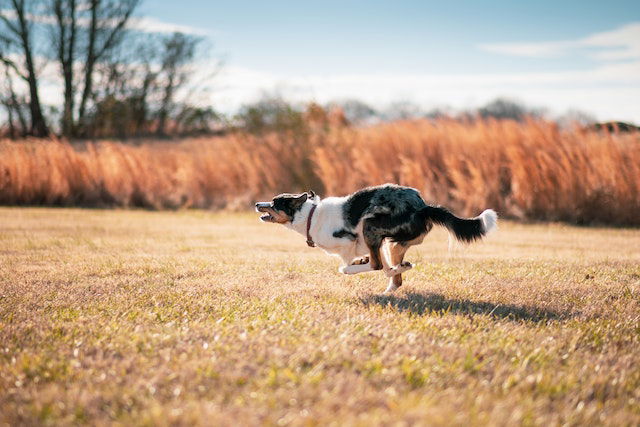
Many individuals decide to adopt a Border Collie after seeing films of these lovely dogs chasing frisbees, herding sheep, or even just solving difficulties by listening carefully and bringing back the appropriate toy.
Border collies are not a good fit for an urban family with few energy outlets. Because they are excellent athletes and have a lot of excess energy, these dogs excel at frisbee and other sports. There will be issues if the dog does not have an outlet for his or her energy.
All of that energy will result in behavioural issues, which could result in the dog being taken to an animal shelter.
There is probably no better dog available if you have a small farm and cattle that your Border Collie can manage. Border Collie training is covered in more herding books than any other breed. This herding dog is not a suitable breed to adopt if you cannot be in contact with your dog all day and do not have cattle for him to look after.
3 - Labrador Retriever
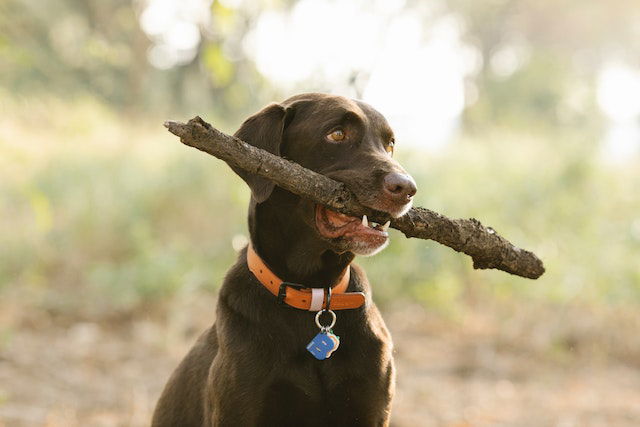
The Labrador Retriever is the world's most popular dog breed. For over 20 years, it has been the most popular! That's remarkable, but is the lab always actually the most suitable breed for everyone?
Yes, in some situations. They don't belong in other places. They are not just the most popular dog breed, but they are also the most likely to be discarded at an animal shelter and subsequently killed by lethal injection.
Labradors are highly intelligent. Perhaps a little too much so sometimes. There are many stories of bored labs probing the subsurface fence until they can get out, unlocking cupboards, and removing bin lids.
Apart from that, labs, like many clever dogs with nothing to do throughout the day, suffer from separation anxiety. Separation anxiety causes dogs to dig holes, chew walls, and be destructive in a variety of ways.
4 - Weimaraner
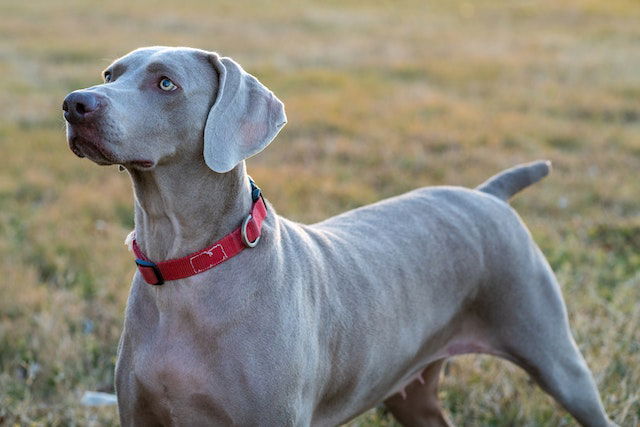
The Weimaraner is a member of the hunting dog breed group and should not be a popular choice for most households. This is one hunting breed that should not be left unattended around the home.
They are prone to separation anxiety and are recognised as a "Velcro" breed, as are many hunting dogs. They are not a good breed to have if an owner only wants one of these dogs for the weekend and cannot live with a dog that follows them around all the time.
This breed is a fantastic choice if you are an ardent hunter, work from home, and want a dog that will be with you all day. If you aren't, you shouldn't get a Weimaraner.
5 - German Shepherd
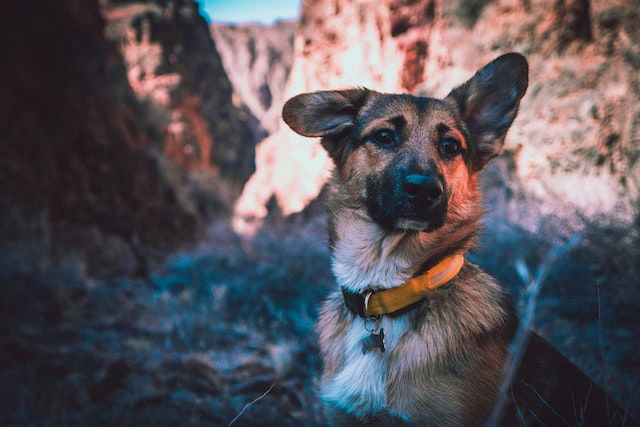
The German Shepherd Dog is a famous dog breed that has been around for a long time. Despite their origins as a herding breed, they have evolved into excellent personal protection guard dogs, watchdogs, and property security dogs. They are bright canines that are also one of the easiest to teach. They aren't slackers and shouldn't be left alone all day.
Many individuals will adopt one of these dogs and then neglect to teach it even to the most basic level. They anticipate their German Shepherd sitting around the home, content as any tiny lap dog.
The German Shepherd is an excellent choice if you are ready to devote time to training, teaching your dog new instructions, and working with your dog on a regular basis. This dog is one of the greatest breeds to have if you use it for therapy and spend all day engaging with it.
If you still want to adopt one of these breeds after reading these descriptions, consider obtaining a middle-aged or senior companion. Young dogs have a lot more energy than older dogs and are more prone to behavioural problems.
Inquire about senior pets at your local animal shelter. Because of individuals relocating to a new location, being forced to relocate to an apartment that does not accept dogs, divorce, and other factors, there are always a number of nice dogs available.
Cat breeds you might want to avoid
Cats are fascinating creatures because they can be affectionate but independent, curious yet timid, and intelligent yet silly.
They can also be tough to deal with since they can have difficult-to-resolve behavioural issues, they can be picky eaters, and they don't always reciprocate your love and compassion.
Because certain breeds are more difficult to own than others, it's generally advisable to avoid any of the breeds on this list if you've never owned a cat before. They're all wonderful cats, but each has its unique set of issues that might be daunting for new owners. Here we will look at five breeds of cat you should avoid.
1 - Bombays
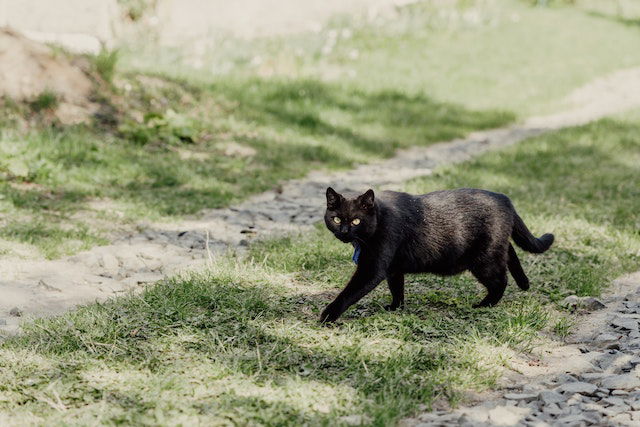
These lovely little fellas resemble panthers, and if you spend enough time with them, you'll notice that they, too, believe they're panthers.
This is a rambunctious breed. They aren't necessarily violent, but they do like to roughhouse, so anticipate scratches and bite marks.
Bombays can also become aggressive if startled by loud sounds or unexpected surprises, making them unsuitable for homes with small children.
2 - Persians

These cats are exceptionally affectionate and loyal cats who make excellent emotional support animals. Why are these cats on this list? There are few things more comfortable than having one of these cats cuddled up in your lap and purring.
A Persian will make sure you find out the hard way if you are even the tiniest bit allergic to cats. Because these cats' coats contain more of the protein that causes allergic responses than any other breed, don't be shocked if you're always red-eyed and sniffling.
3 - Savannahs

These cats despise being carried and will express their displeasure in the most obnoxious manner imaginable.
They're distant and independent, therefore they're best suited to owners who know how to give cats lots of room.
If you're a newcomer, you might not have the patience to wait for Savannah to warm up to you — and as a result, you might end up buying plasters in mass.
4 - Siamese
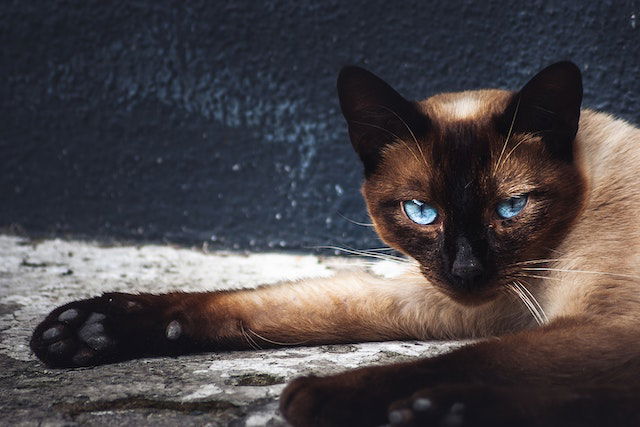
Siamese cats are known for bonding with a single family member and becoming violent if another family member attempts to disturb their snuggles.
That's a problem if you have children (or if you're not the one with whom they choose to bond).
Worse, breaking them of this tendency can be particularly hard, especially if you have no prior experience with cat training.
5 - Egyptian Maus
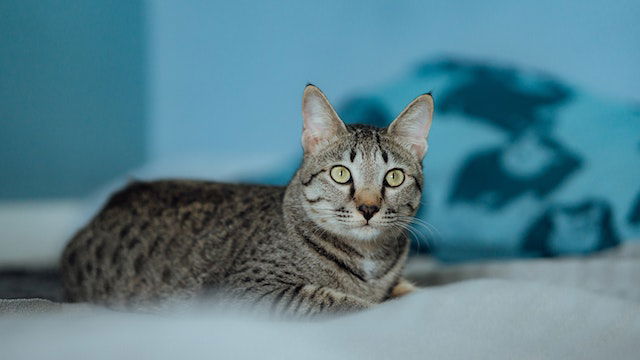
This lesser-known breed is incredibly stunning, but when they feel like it, they can be rather challenging. They're prone to resource-guarding, so if you try to remove one of their toys or goodies, you can end up with a bleeding hand.
They're reserved, yet their demeanour conceals a ruthless side. Egyptian Maus do, however, form deep bonds with their family, so you may only notice their bad side when you have visitors.
 New dog informationAre you adopting a dog? One of the best things you can do is rescue an dog. However, it's crucial to keep in mind that every new best buddy has a unique tale to tell.
New dog informationAre you adopting a dog? One of the best things you can do is rescue an dog. However, it's crucial to keep in mind that every new best buddy has a unique tale to tell. Dog treatsDog treats are often used for training and rewarding dogs, but it's crucial to select healthy options and know how to use them properly.
Dog treatsDog treats are often used for training and rewarding dogs, but it's crucial to select healthy options and know how to use them properly. Top 10 calmest dog breedsBulldog. Cavalier King Charles Spaniel. Basset Hound. Great Dane. Shih Tzu. Bernese Mountain Dog. Newfoundland. Greyhound. Golden Retriever. Saint Bernard.
Top 10 calmest dog breedsBulldog. Cavalier King Charles Spaniel. Basset Hound. Great Dane. Shih Tzu. Bernese Mountain Dog. Newfoundland. Greyhound. Golden Retriever. Saint Bernard.